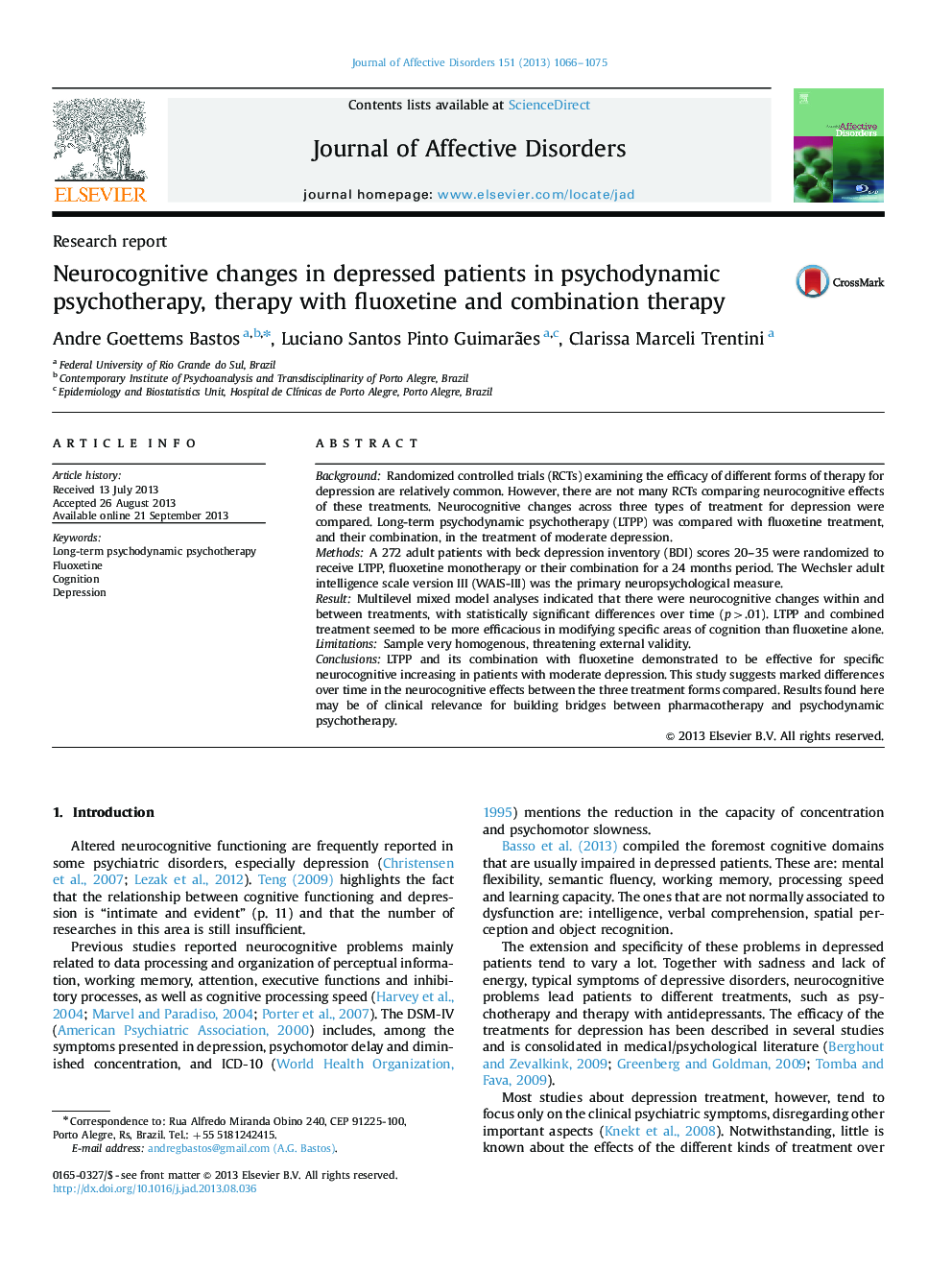| Article ID | Journal | Published Year | Pages | File Type |
|---|---|---|---|---|
| 6233515 | Journal of Affective Disorders | 2013 | 10 Pages |
BackgroundRandomized controlled trials (RCTs) examining the efficacy of different forms of therapy for depression are relatively common. However, there are not many RCTs comparing neurocognitive effects of these treatments. Neurocognitive changes across three types of treatment for depression were compared. Long-term psychodynamic psychotherapy (LTPP) was compared with fluoxetine treatment, and their combination, in the treatment of moderate depression.MethodsA 272 adult patients with beck depression inventory (BDI) scores 20-35 were randomized to receive LTPP, fluoxetine monotherapy or their combination for a 24 months period. The Wechsler adult intelligence scale version III (WAIS-III) was the primary neuropsychological measure.ResultMultilevel mixed model analyses indicated that there were neurocognitive changes within and between treatments, with statistically significant differences over time (p>.01). LTPP and combined treatment seemed to be more efficacious in modifying specific areas of cognition than fluoxetine alone.LimitationsSample very homogenous, threatening external validity.ConclusionsLTPP and its combination with fluoxetine demonstrated to be effective for specific neurocognitive increasing in patients with moderate depression. This study suggests marked differences over time in the neurocognitive effects between the three treatment forms compared. Results found here may be of clinical relevance for building bridges between pharmacotherapy and psychodynamic psychotherapy.
